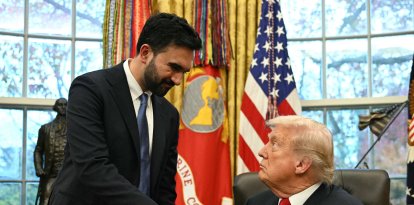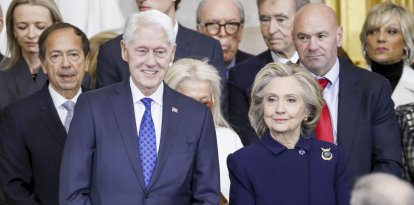China, Russia, Iran and Cuba tried to interfere in US elections
A report by the National Intelligence Council revealed how countries pushed for measures to divide society and undermine democratic institutions.

(Unsplash)
The National Intelligence Council published a report explaining how countries such as China, Russia, Iran and Cuba have tried to interfere in various electoral processes such as the midterms and the 2016 presidential elections. The office explained that these countries promoted the candidacies of people who represented their interests.
The report indicated that China tried to influence a handful of midterm races involving members of both political parties (Republican and Democrat). The cases also include intelligence officials, diplomats and other agents of influence from the People's Republic of China.
NIC Declassified ICA Foreign Threats to the 2022 US Elections Dec2023 by Williams Perdomo on Scribd
NICM Unclassified Other Countries Activities During 2022 Election Cycle Dec2023 by Williams Perdomo on Scribd
"The IC observed other countries engaging in some efforts to support or undermine specific candidates during the US elections in 2022 that aligned with these countries’ perceptions of a candidate’s willingness to advance policies in support of the countries’ interests," the council reported.
Russia's influence
The office explained that Cuba's interference was on a smaller scale and had more specific objectives than China, Iran and Russia.
In the case of these three countries, the office claimed that they directed campaign contributions to candidates who they believed would promote their interests and oppose policies against them if elected. "Sought to obscure their involvement by using US persons, organizations, and businesses—with either direct links to or who were otherwise aligned with leaders of these countries—to fund candidates’ election campaigns," according to the document published by IC.
Likewise, China increased its efforts to increase sociopolitical divisions in the country. In addition, China "repeatedly have instructed officials to focus on Congress because Beijing is convinced that Congress is a locus of anti-China activity."
Iran's efforts to divide society
The countries also promoted discussions that divided American society and questioned the usefulness of the vote and the legitimacy of the elections. This was one of Iran's strategies.
Tehran's interference during the midterm elections was likely reflected in resource constraints due to competing priorities and the need to manage internal unrest. According to the council's study, Iran attempted to implode perceived social divisions and undermine trust in American democratic institutions.
Undermining confidence in elections
The office also estimated that the Russian government attempted to undermine confidence in the elections, "most likely to undermine U.S. support for Ukraine. We have high confidence in this assessment. Elements of the Kremlin and its intelligence services conducted extensive research and analysis of U.S. audiences to inform their election-related efforts, including identifying target demographics and the narratives and platforms that they perceived would appeal to these audiences, reflecting some of the IC's most explicit reporting to date on Russia's US-focused influence operations."
Finally, the office warned that there were attempts by other countries - which were not revealed - to also interfere in American democracy. However, it wasn't enough to be considered still a threat. "In addition to this second set of countries, the IC also observed a third category of countries that engaged in or directed some activities that fell short of the IC’s threshold for being classified as election influence because, in this third category, we lacked indications that the activities were explicitly intended to influence U.S. elections."

























